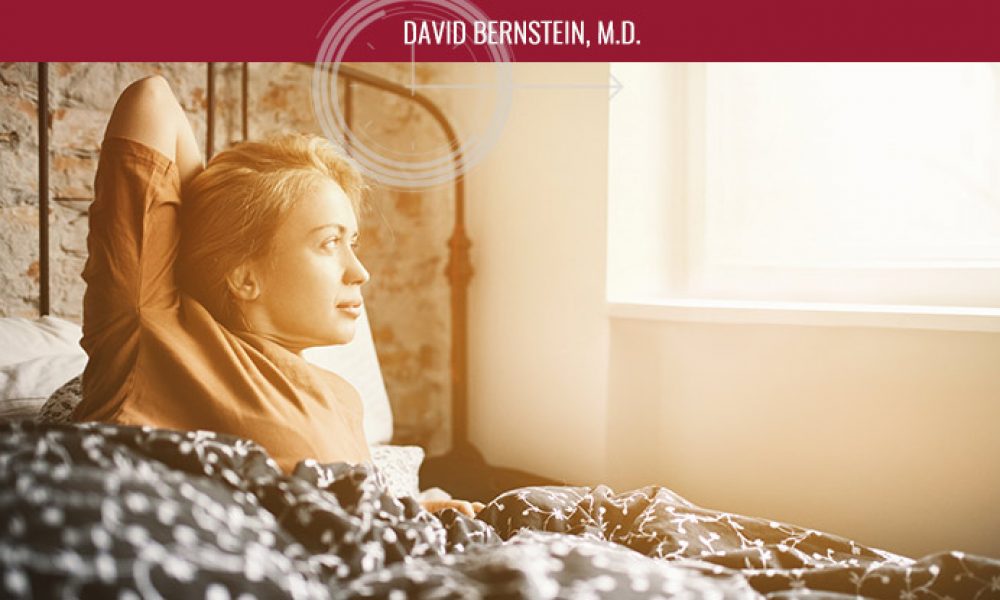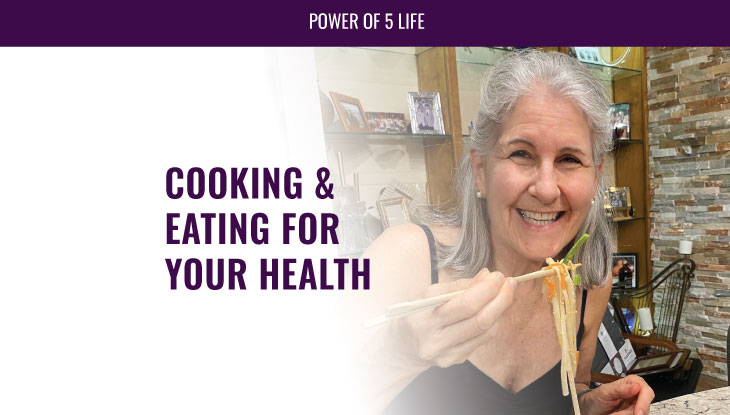A good night’s sleep is so important to us all. It is clear in all medical literature that sleep plays a vital role in our overall mental and physical health. Disruptive sleep has long been associated with cognitive impairment, dementia and other neurodegenerative diseases such as Parkinson’s disease. Sleep researchers are not entirely certain which of several factors is the most influential but nonetheless there is agreement that disrupted and limited sleep puts an individual at risk.
At some point in most of our lives, we have all experienced a “bad” night’s sleep. According to sleep scientists, disrupted sleep causes some kind of effects on our brain’s system. Many feel that sleep is a time to flush the brain’s waste products, others believe that during disrupted sleep there is a buildup of proteins that damage the brain. What are some strategies to enhance our sleep and ward off potential neurodegenerative effects?
In The Power of 5, I spend an entire chapter detailing sleep disturbances, disorders and sleep deprivation. Studies reveal that these conditions can promote chronic diseases such as obesity, diabetes, heart disease, hypertension, and mood disorders – just to name a few.
The Power of 5 formula includes the following key sleep hygiene practices that ensure a good night’s sleep.
- Create a haven for sleep – Keep your bedroom cool, dark, quiet and uncluttered. Leave technology out of the bedroom.
- Work with your sleeping partner – Individual differences in sleep patterns require compromise and consideration. Discuss ways to prevent disruption of each other’s sleep patterns so you both get a good night’s sleep.
- Check your sleeping posture – Be sure you have the right mattress and pillows, then you can refine your sleeping positions with extra pillows as needed. If you sleep on your side, putting a pillow between your legs will minimize any twisting strain on your lower back.
- Keep to a regular sleep schedule – This helps to keep your body clock on track and promote your natural drive to sleep.
- Healthy day, healthy night – Here are two changes to consider for good, quality sleep. First, limit your caffeine intake to morning or early afternoon. Second, consider the timing of your exercise. It can result in a more effective release of chemicals and hormones that produce a better quality of sleep.
- Wind down properly – Make an effort to disengage from the outside world an hour or two before bedtime. Stop working, steer clear of social media, try more relaxing activities such as chatting or having a bath. You could do a “mental download.” To put your brain into neutral, write down everything that is whirring around in your head. Be sure to use a notebook and pen, NOT the computer. The screen of your computer is designed to be bright. That’s fine during daylight hours, but it becomes unhealthy when bedtime is approaching because it fools your body into thinking you need to stay up. F.lux, a free app available at www.justgetflux.com, makes the color of your computer screen resemble the current time of day, helping your body recognize that bedtime is drawing near.
- Snack on snooze foods – Turkey and warm milk contain tryptophan (the precursor to melatonin), while honey contains the neuropeptide orexin (also called hypocretin), which reduces alertness. Marmite, almonds, chamomile
and oatcakes are also good. Bananas have high levels of serotonin and magnesium. Never go to bed hungry. Try eating an early evening meal followed by a sleep-inducing bedtime snack several hours later. - Follow the 20-minute rule – If you don’t fall asleep within fifteen or twenty minutes, don’t stay in bed “trying harder” to drift off. Instead, get out of bed. Leave the bedroom and do something quiet and non-stimulating, such as reading a book or knitting, until you feel sleepy again. The longer you toss and turn in bed, the more frustrated and anxious you will become and the longer it will take you to relax, unwind and, eventually, fall asleep.
- Start a sleep diary – Sometimes we are unaware of bad habits until they are pointed out to us. A sleep diary, a smartphone app, or some other device such as a Fitbit can help us discover factors leading to poor sleep, as well as track treatments or behavior changes that are helping us sleep better. Complete your diary every morning, looking back over the past day and night. List each complete hour you were asleep in bed, and each partial hour (including naps). Then list events that may have influenced your sleep: drinking alcohol or caffeine, taking sleeping pills, exercising, eating, or using the washroom during the night, and when the event happened. Keep the diary for two weeks.
- Be mindful of your thoughts and emotions – Many who struggle to sleep
worry about the past (how little sleep they have had) and the future (how bad things will be if they don’t sleep). Such worry only increases nighttime arousal and cultivates a “learned response,” with the brain repeating the pattern of anxiety each night. Mindfulness—the practice of focusing on the present moment—has been shown to increase the speed at which people fall asleep and the quality of their sleep. Practice observing and letting go of your thoughts and use your senses to notice the touch of the duvet on yourtoes, or the rise and fall of your breathing. - Consider alternative therapies – For sleep problems related to lifestyle, anecdotal evidence indicates that therapies such as acupuncture,
homoeopathic remedies and massage may be useful. As long as the treatment is not harmful, it may be worth trying. Of the many herbal preparations that claim to aid sleep, the flowering plant valerian has the most medical and scientific evidence supporting its effectiveness.
See a doctor if your sleep problems continue. If you have trouble falling asleep night after night, or if you always feel tired the next day, then further evaluation regarding sleep disorders is warranted.
For patients with insomnia, the most appropriate recommendation from a physician is a referral for Cognitive Behavioral Therapy (CBT). This type of treatment is performed by a
Most s
To a Long and Healthy Life (and a Good Night’s Sleep),
David Bernstein, MD



